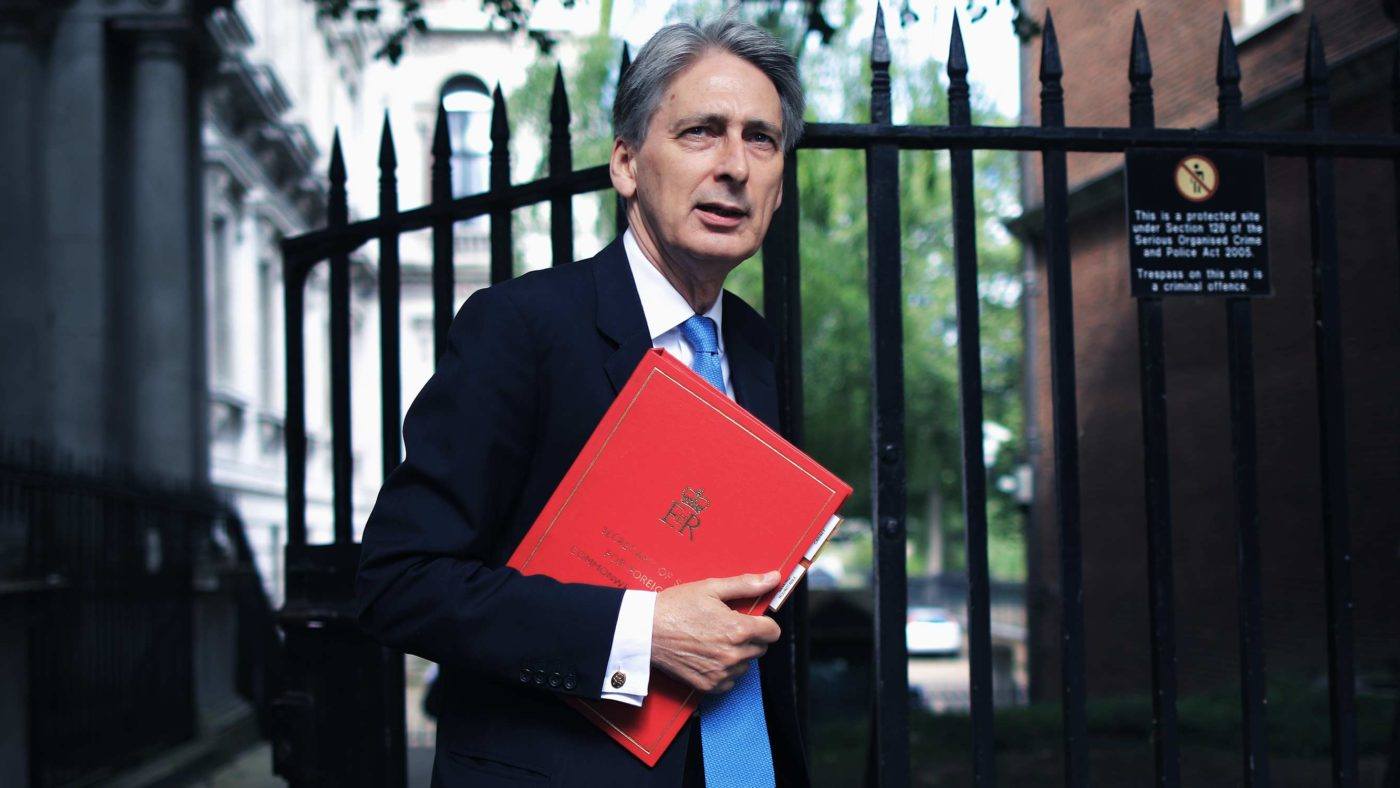This article is taken from the CapX Weekly Briefing. Sign up here.
A few years ago, I heard Theresa May address a gala dinner in Westminster. Her speech, which ranged far beyond her responsibilities at the Home Office, was the clearest possible statement of intent: she wanted to be Prime Minister.
The year after, I went to the same dinner, to listen to Philip Hammond. His speech, too, was the clearest possible statement of intent: he wanted to be Chancellor.
Although he was Defence Secretary at the time, Hammond – who would have been George Osborne’s No 2 in the Treasury, but for an unfortunate outbreak of Liberal Democrats – spoke not of his pride in our brave boys, of Britain’s role in the world.
His focus was on numbers and figures: how he had systematically closed the black hole in the defence budget, how he had started to get a grip on the nightmarishly byzantine system of procurement.
Is this a case of being careful what you wish for? Hammond, having finally succeeded Osborne as Chancellor, now faces the only task in Whitehall more thankless than cleaning the Augean stables at the MoD: doing the same for the public finances as a whole.
There’s a certain irony here. The world has spent the week discussing post-truth politics: not just the plague of fake and filtered news on Facebook and whether it contributed to Donald Trump’s election victory, but the new President-elect’s alarming tendency to treat honesty as an optional extra.
In the UK, meanwhile, the central political event of the coming week could not be more fact-heavy. A 60-year-old white man in a tie will stand in front of the House of Commons and, essentially, read out a list of numbers. Some of them will be very large: the size of the deficit, for example. Some will be quite small, not least the rates of growth forecast over the coming years (although the pessimists have been wrong before).
The problem for Hammond ahead of the Autumn Statement on Wednesday is that he is essentially hamstrung – not just by his reportedly prickly relationship with his boss in No 10, but by the basic state of the political scene.
Yes, it will be interesting to see how his economic strategy differs from George Osborne’s – and in particular whether he forsakes the politicised gimmicks of which the latter was so fond, such as enshrining fiscal commitments in law for the sole purpose of making the Labour Party squirm.
It will also be interesting to see how he puts flesh on the bones of Theresa May’s promise to govern for those who have been scorned and overlooked over the past decade – now christened the JAMS, for “just about managings”, which has a good claim to be the ugliest such neologism since Nick Clegg’s “Alarm Clock Heroes”.
But those hoping for something revolutionary – such as a fresh commitment to growth-enhancing free-market principle, or an unflinching insistence on deficit destruction – are likely to be disappointed.
Hammond doubtless has all sorts of good long-term ideas about how to improve the economy. If not, we will be suggesting some on CapX in the coming days.
But for now, his main priority – like Mark Carney’s – is not to frighten the horses. Britain’s economy is still doing well: in fact, it will grow at a faster clip this year than any in the G7.
Hammond’s main task is to keep growth going while the Brexit negotiations take shape, most probably by loosening the purse strings in terms of infrastructure investment, and pushing back (yet again) the date at which deficit becomes surplus.
The real reforms, in other words, may have to wait until our Brexit strategy is clear – a large part of which will involve working out what kind of country, and economy, we want to have.
In the meantime, as he gazes at the shambles over the Atlantic, the Chancellor may reflect that there are many things that are a great deal worse than being a bit boring.


